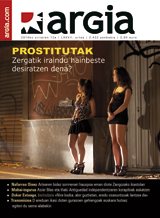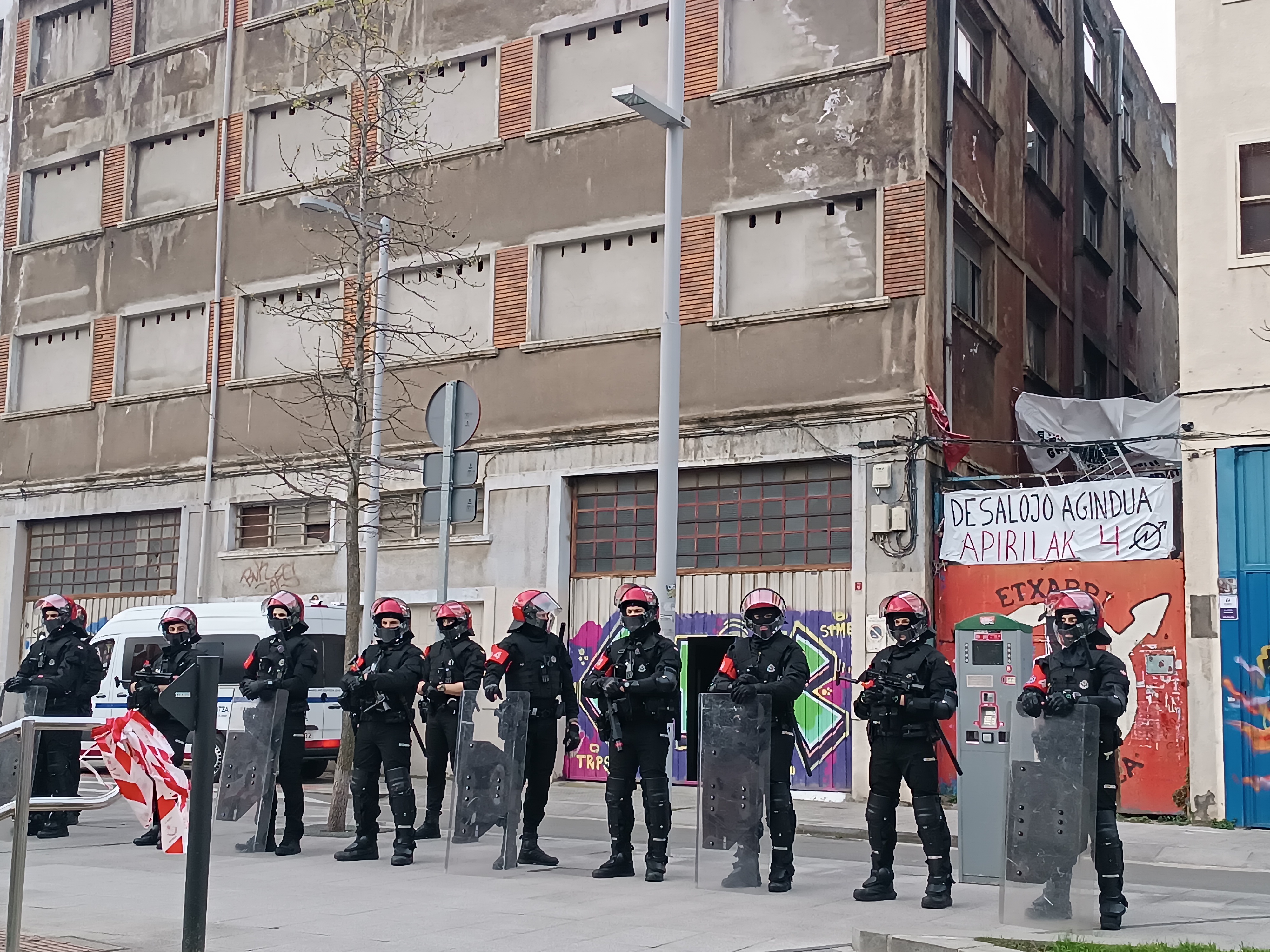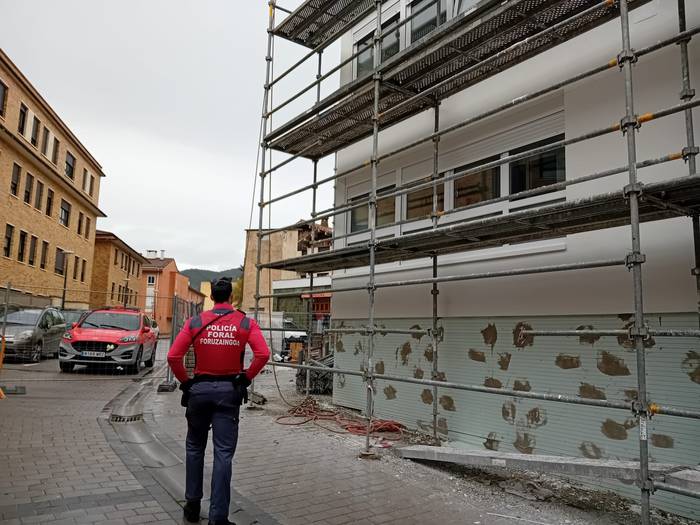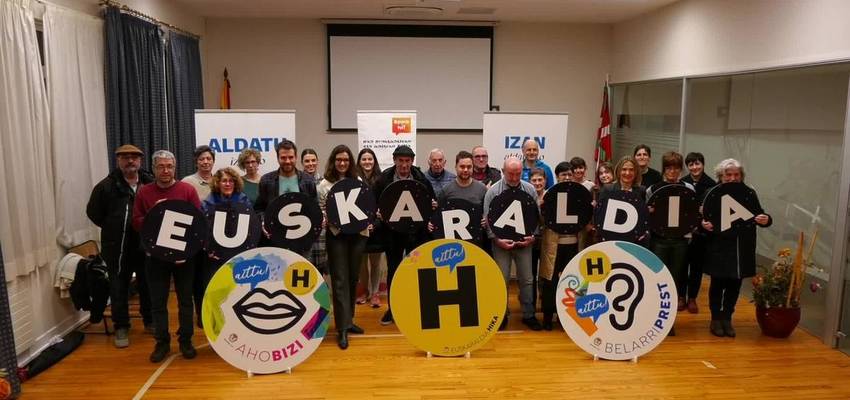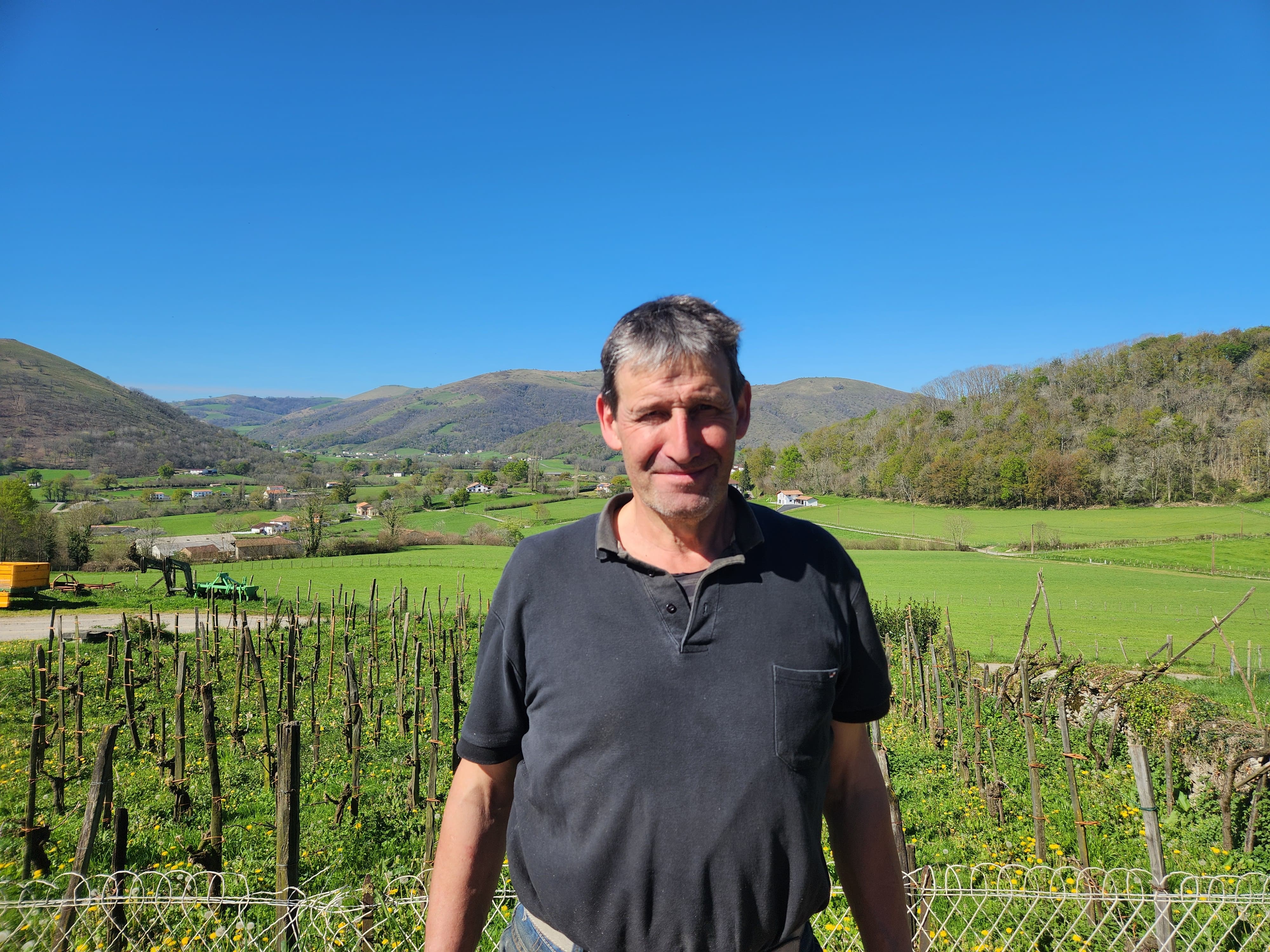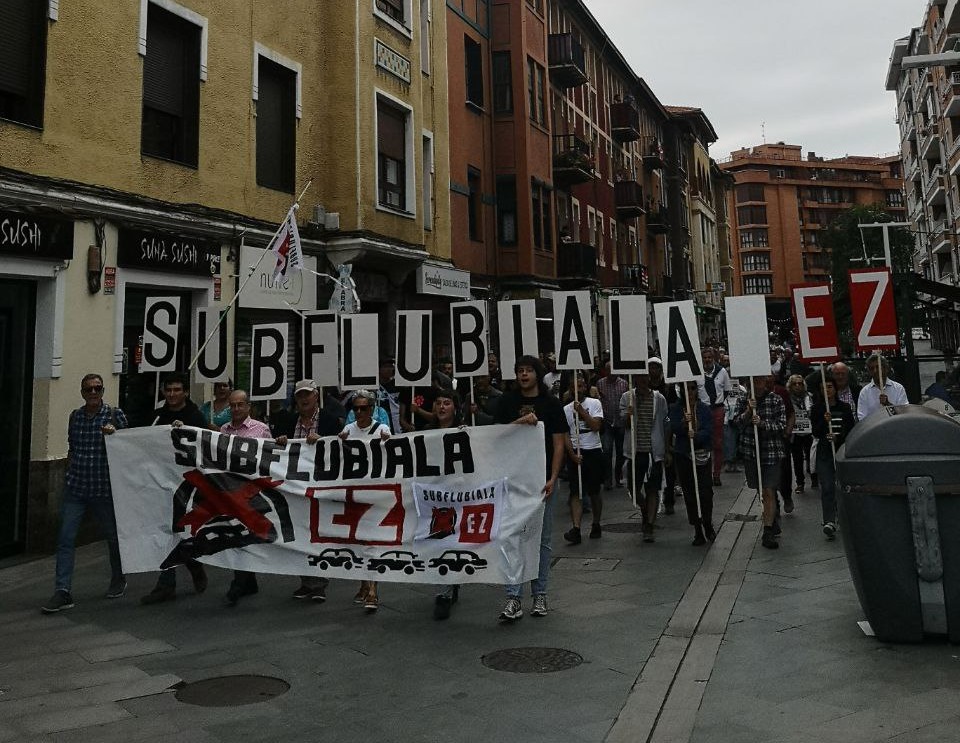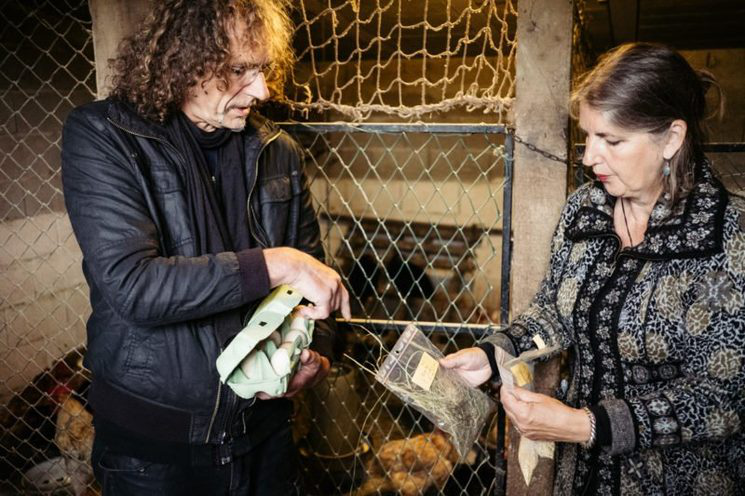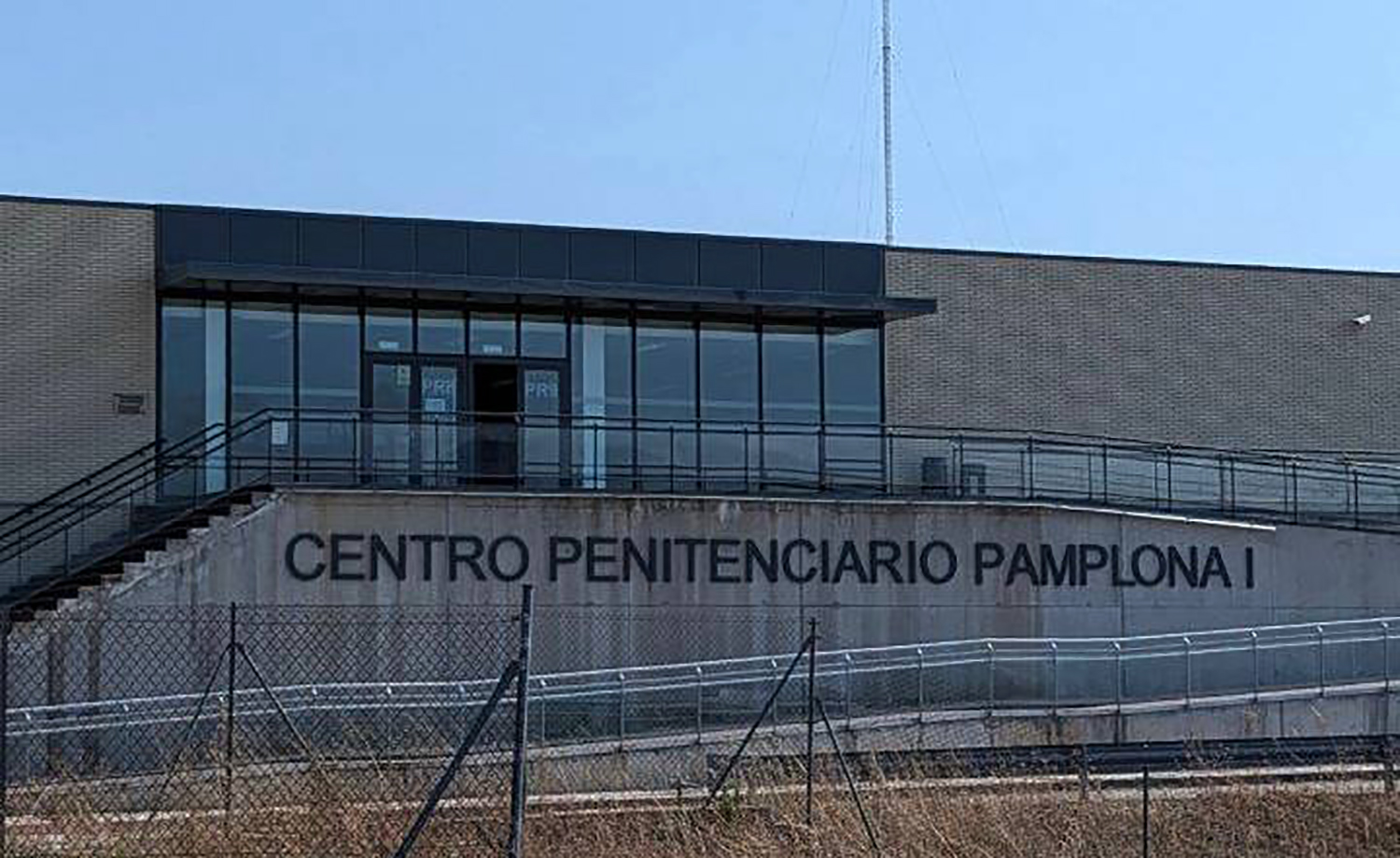There are no roadmaps to sovereignty on the map of the Basque Country
- On the occasion of the Day of Light, we organised a musical round table in Usurbil, within the framework of Independence Day: what strategy does Euskal Herria need? Under the motto '. Asier Blas and Iñaki Antiquity insisted on the need to activate society to advance towards independence. Led by Basque Catalan musician Carles Belda, the audience ended up pushing the stake singing L’Estaca de Lluís Llach.
What should we do in Euskal Herria to achieve independence? This was the main question we asked from the very beginning at the Sutegi Culture House in Usurbil. We have gone from one side to the other and raised the two speakers with questions on which we can speak without any hesitation. Neither of them had failed. The political scientist and professor Asier Blas compared with the coldness of the strategy the differences between the rest of the nations of the world and Euskal Herria, while the professor of hydrogeology and politician Iñaki Antiquity passionately explained the paths to be followed to be more sovereign.
What consequences will non-Scots have in the Basque Country? And in Catalonia?
With regard to the outcome of the referendum in Scotland and in taking important steps for the consultation in Catalonia, we asked them: How will non-Scots affect Basque Country and Catalonia?
Blas immediately replied to the agreed point: “Yes would have more effect than no (...) What has been shown is not that in the European context the right to decide can be exercised. And we can't go any further. It is a benchmark, but it is not a model.” What he has seen in other processes of self-determination is that when it has been agreed it is difficult to carry it forward “because there is no extreme tension”. This idea was repeated several times: “I would say that Catalonia is closer to independence than Scotland, because the tension between Catalonia and Spain is great.”
Antiquity focused on the democratic character of the Scottish process: "It has not happened in Quebec, across the Atlantic, nor in Eastern Europe, it has happened in the west of the country. So it's possible, but it's complex. This complexity has given rise to many tapas in consciences, things have not been sacralized as we have done.”
When and how should a country disobey independence?
The Catalan consultation has found the wall of the Constitutional Court and has opened a debate between CDC and ERC on the disobedience to the prohibition, also within the Generalitat.
Antiquity put Catalonia as an airplane crossing the Atlantic, a point that cannot be reversed: “Saying that it’s unconstitutional doesn’t end at all, maybe yes, but there isn’t. The process will continue from 9 November.”
Blas has the roadmap that the Mas Executive should draw from his experience in Lithuania: “What Catalonia is interested in is going to a plebiscite election, that independence won with a clear majority and that a unilateral proclamation be made.” According to Blas, if there were a low turnout of 45-50% on 9 November, the result would have no effect, and Catalonia would be dissolved in its regional competences and without declaring independence.
In short, the effectiveness of disobedience is what needs to be measured. For Antiquity the key is to have an alternative: “They are two sides of the same coin.”
How does the blockade of the peace process condition the creation of a strong independence movement in the Basque Country?
Blas has seen the peace process as a "brake" on achieving independence, but less and less needed. In his view, the great mobilizations of yesteryear have ended and despite the fact that a social sector is very aware of the situation of prisoners, others care “little”: “It is becoming increasingly clear that issues relating to pacification will go on the one hand and those relating to sovereignty on the other … So Esku Dago managed to dream that it is possible to start a new cycle of mobilisations. If this illusion wakes up, it would be easier for us to socialize the issues of pacification.”
Antiquity talked about the possibilities of pragmatism and set an example of this was the creation of the Sare platform to end the dispersion: “Now we do not mention amnesty (...) recently many prisoners have been taken out of prison because we went to Strasbourg; that would be impossible at one time.”
Different speeds in the CAV, Navarra and Iparralde?
“I am pleased that in recent years it has been made clear: three decision-making areas, three rhythms.” With these words Antiquity clearly presented his opinion on the issue of territoriality. In his opinion, in Navarre the Navarros have to decide, in Iparralde the North... He even asked for meditation. “A territorial unit yes, but what is a federation? A confederation? (...) All this needs to be specified.”
The same is true for Blas: to reflect, to think and to debate. The political scientist turned to the core of the knot: “The territory that most of the nations of the world claim for themselves does not materialize later when they reach the State.” Example of Slovenia: The city of Trieste in northern Italy and Carinthia in Austria are in fact Slovenia, but when it separated from Yugoslavia it was unable to take them for itself. “What problems do we have? If the Basque Country has 20,000 square kilometers of which only 7,000 are from the CAV, it is hard to stay with that.”
Blas sees a process of independence in the medium term in the CAV, or at most in Hego Euskal Herria. And here's the nuance. “They would be very different in terms of content, a state that encompasses the CAV or that includes Hego Euskal Herria, for example, with regard to the Basque Country”.
Before choosing anything, Blas has been convinced that you have to have a project and talk about it: "In our environment there were many independentists, but independence was a matter of identity. There were no projects. What was your name for independence? A way to differentiate, ideological”. Antiquity also lacks a roadmap to sovereignty.
Could alliances be envisaged between EH Bildu and the PNV on sovereignty?
Asier Blas does not see it in the short term. He sees both parties in the midst of the struggle for Hegemony and believes that, unlike what happened in Catalonia with ERC and CiU, when the situation unlocked in the 2010 elections, here they will continue like this.
“What is the alternative? Society. What we need is less and less devoted people and more and more independent people. In Catalonia, the liberal culture, if anarchist is desired, is much more widespread, they have taken more care of the freedom of the individual”. For Blas, the churches of politics are the parties: “If the cure says that local referendums should not be done, as was done in Catalonia from 2009 onwards, the parish does not. Therefore, for social movements to be more independent, what we need is not to de-logize, to be independent means to maintain the criticity with the parties”.
Antiquity agrees that the movement of the street should promote the political class and on this one can deepen, but the PNV does not see it: “If a referendum such as Scotland were held here, the PNV would vote for Yez. The PNV is not Convergència, nor Alex Salmond’s party.” The historic member of the Abertzale left fears that the Jeltzales would negotiate with Madrid “a unique answer question, as they did with the Gernika Statute, an update of self-government”. However, it considers that the level of support that society would give to more sovereignty cannot be extrapolated from the election results: “If you raise it, do you want to decide here, a lot of people voting for the PSE wouldn’t say yes?”
What can institutions do and what can citizens do to make daily progress towards independence?
Antiquity, throughout the round table, retained an idea used as a line with the pretext of the following question: “There are a lot of people who are doing it on a day-to-day basis, in Usurbil and anywhere else; for example, when we drive short food circuits. We lack the glottic to know that we are walking towards sovereignty from the closeness”. At another point in the round table, he also linked this defense of closeness to power: “One thing is fundamental: feeling that you have the power close, that the small is nice, the closeness... Sovereignty should not be raised from such an economy, but from personal satisfaction”.
At this point, Blas focused on what institutions can do. Thus, returning to the Catalan example, mentioned the Institut d’Estudis Autonòmics, an institution that investigates sovereignty, and recalled that until recently TV3 had the slogan television for a nation: “I don’t see it at ETB.” In this kind of symbolic stuff, the Basques walk behind representing Blas.
What is the point of a non-Basque state?
Journalist Ander Pérez interviewed Rob Dunbar, a university professor in Edinburgh, for this weekend (the video can be seen on the Argia website). Dunbar says that the Scots consider Gaelic very important, but they do not see the need to know the language.
The Basque country, on the contrary, is one of the hallmarks of the Basques, but we are still far from linguistic normalization. How do we link this to independence? “If we speak of a Basque state, the Basque is indispensable,” Antiquity answered our question.
Blas also thinks the same thing. But here's your answer: “It would make the same sense as the Irish State or what independent Scotland would have. Independence would be a State with less independence.” Blas explained that the Basque country is important in itself, and also as a tool for greater independence.
From then on he got into a thorny issue: “We have to be aware that it can be an obstacle.” In saying this, he has in mind students erdaldunes who fear that in an independent Basque Country the Spanish will be banned: “We must behave intelligently with the Basque Country, knowing that the State is essential for the Basque Country (...) In that State there must be monolingual areas, because if a language has to endure, it is because it has all the hegemony in an institutional organization, because that alone will bring full normalization”.
So we ended the roundtable, full of content and, as the bertsolari Julio Soto sang on Light Day, “Now to Catalonia before looking painfully at Scotland/Back.”
Carles Beldaren soinu txikiak Laboaren Txoria txori kantaren doinua zabaldu zuen Usurbilgo Sutegi kultur etxearen aretoan ekitaldiaren hasieran. Ondoren berriz ere hartu zuen txanda euskaldun-katalanak.
Beldak urte mordoa daramatza Zugarramurdin bizitzen, baina Kataluniako ezkerreko mugimendu independentistarekin lotura estua mantentzen du. “Kataluniar kolonoa sentitzen naiz Euskal Herrian” esan zuen. “Ama” hitz palindromotik abiatuta (katalanez cap i cua, burua eta isatsa) Zuberoako sehaska kanta jo zuen: “Katalunian nire ustez alde duguna da emakumeak bideratzen ari direla prozesua, eta hori sumatzen ari da, finki, beldurrik gabe eta finitu arte, behar den bezala”.
Beldak ederki ezagutzen ditu, hemengo eta hango errealitateak, baita beste hainbat hizkuntza gutxituenak ere. “Nola erraten da gaelikoz yes?” zirikatu zituen entzuleak.
Errepertorio inprobisatuan tartea izan zuen Segoviako ihesa filmarengatik ezaguna zaigun Rossignol que vas a França XVII. mendeko abesti katalan tradizionalarentzat (“lehen aipatu dugu Yez, nik proposatzen dut ihes”) eta baita Llach-en L’Estaca-rentzat ere (Agure zahar batek zion). Abesti horren euskarazko eta katalanezko bertsio originalaren artean dagoen desberdintasun bat aipatuz amaitu zuen, umorez, Beldak: Batean protagonista lasai asko dago etxe atarian, “eguzkitan, gurdiak nola pasatzen diren ikusiz”, bestean aldiz, goizean goizetik lanera doa protagonista bera. Asmatu zein den katalana eta zein euskalduna... “Nik botako dut doinua eta zuek egin nahi duzuena, lana edo ez”.
I'm talking about Interview. With water and sand
Authors: Telmo Irureta and Mireia Gabilondo.
The actors: Telmo Irureta and Dorleta Urretabizkaia.
Directed by: Assisted by Mireia Gabilondo.
The company is: The temptation.
When: April 2nd.
In which: At the Victoria Eugenia... [+]
Euskal Herriko Laborantza Ganberak hogei urte bete ditu. 2005ean sorturik, bataila anitzetatik pasa da Ainiza-Monjoloseko erakundea. Epaiketak, sustengu kanpainak edota Lurramaren sortzea, gorabehera ainitz izan ditu hogei urtez.









